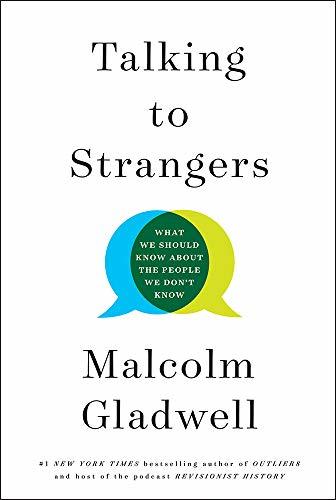
Revenge of the Tipping Point: Overstories, Superspreaders, and the Rise of Social Engineering
Book Description
What if a single idea could ignite a wildfire of change? In "Revenge of the Tipping Point," Malcolm Gladwell dives into the explosive dynamics that turn ordinary thoughts into societal movements. Through riveting overstories and the phenomena of superspreaders, he unravels the intricate web of social engineering that shapes our world. This journey reveals how tiny shifts can lead to monumental revolutions, challenging every notion of influence and power. As the stakes rise, one question looms large: what will be the next spark to set the world ablaze?
Quick Book Summary
In "Revenge of the Tipping Point," Malcolm Gladwell expands on his renowned theories by exploring how minor events and singular individuals can spark sweeping societal changes. Drawing on psychology, sociology, and cutting-edge science, Gladwell examines the anatomy of "overstories"—compelling narratives that reframe reality—and analyzes how superspreaders transmit ideas faster and further than ever before. He demonstrates how the architecture of influence has evolved through deliberate social engineering, from advertisers and activists to digital disruptors. Through gripping case studies, Gladwell reveals how the tiniest shifts in public sentiment or behavior can lead to outsized, even unpredictable revolutions. The audiobook offers a thought-provoking look at the high stakes of influence today, urging listeners to consider the forces shaping tomorrow's world.
Summary of Key Ideas
Table of Contents
The Overstory Effect: How Narratives Shape Societies
Gladwell begins by exploring the concept of overstories—deep, pervasive narratives that operate beneath the surface of a culture. These overstories provide a shared framework through which societies interpret events, driving motives and justifying actions. He demonstrates how powerful overstories, whether grounded in fact or fiction, have historically catalyzed collective action and social transformation. By dissecting case studies from civil rights to viral internet trends, Gladwell reveals how overstories can subtly predispose entire populations to accept or resist new ideas.
Superspreaders and the Amplification of Influence
Central to Gladwell’s analysis are the figures he calls superspreaders. These are individuals or groups with exceptional capacity to propagate ideas beyond local circles to a mass audience. Drawing on both historical and contemporary examples, Gladwell explains how technology and social media have exponentially increased the velocity and reach of ideas. Superspreaders harness emotional resonance and strategic timing, rapidly shifting what was once fringe into the mainstream, sometimes before society can comprehend the consequences.
Micromoves and Mega Changes: The Science of Small Actions
A cornerstone of the book is Gladwell’s exploration of small-scale interventions—micromoves—that set off disproportionate, sometimes irreversible outcomes. He employs scientific research from psychology and network theory to show how minor changes in habits, language, or policy can ignite larger cascade effects. Whether it’s a tweet that uncovers injustice or a marketing campaign that changes shopping rituals, Gladwell argues that the modern ecosystem is primed for quick ignition through these seemingly trivial shifts.
The Rise and Ethics of Social Engineering
Gladwell then turns to the rapidly evolving world of social engineering, scrutinizing how influence is deliberately designed and directed. He examines how business leaders, activists, and even governments use psychological triggers, algorithmic targeting, and engineered environments to steer group behavior. Throughout, the audiobook raises ethical questions: who determines which stories are spread and which voices are amplified, and to what end? The dangers and opportunities of engineered influence are laid bare.
Predicting and Preparing for the Next Tipping Point
The audiobook concludes with a forward-looking discussion about detecting and responding to looming tipping points. Gladwell urges vigilance in recognizing emergent patterns, noting both hazards and opportunities inherent in a hyper-connected world. He suggests that by understanding these dynamics, listeners can better anticipate and influence groundbreaking shifts. Ultimately, the book calls for a holistic, ethical approach to wielding—rather than merely reacting to—the unprecedented powers of social contagion in shaping the future.
Download This Summary
Get a free PDF of this summary instantly — no email required.





